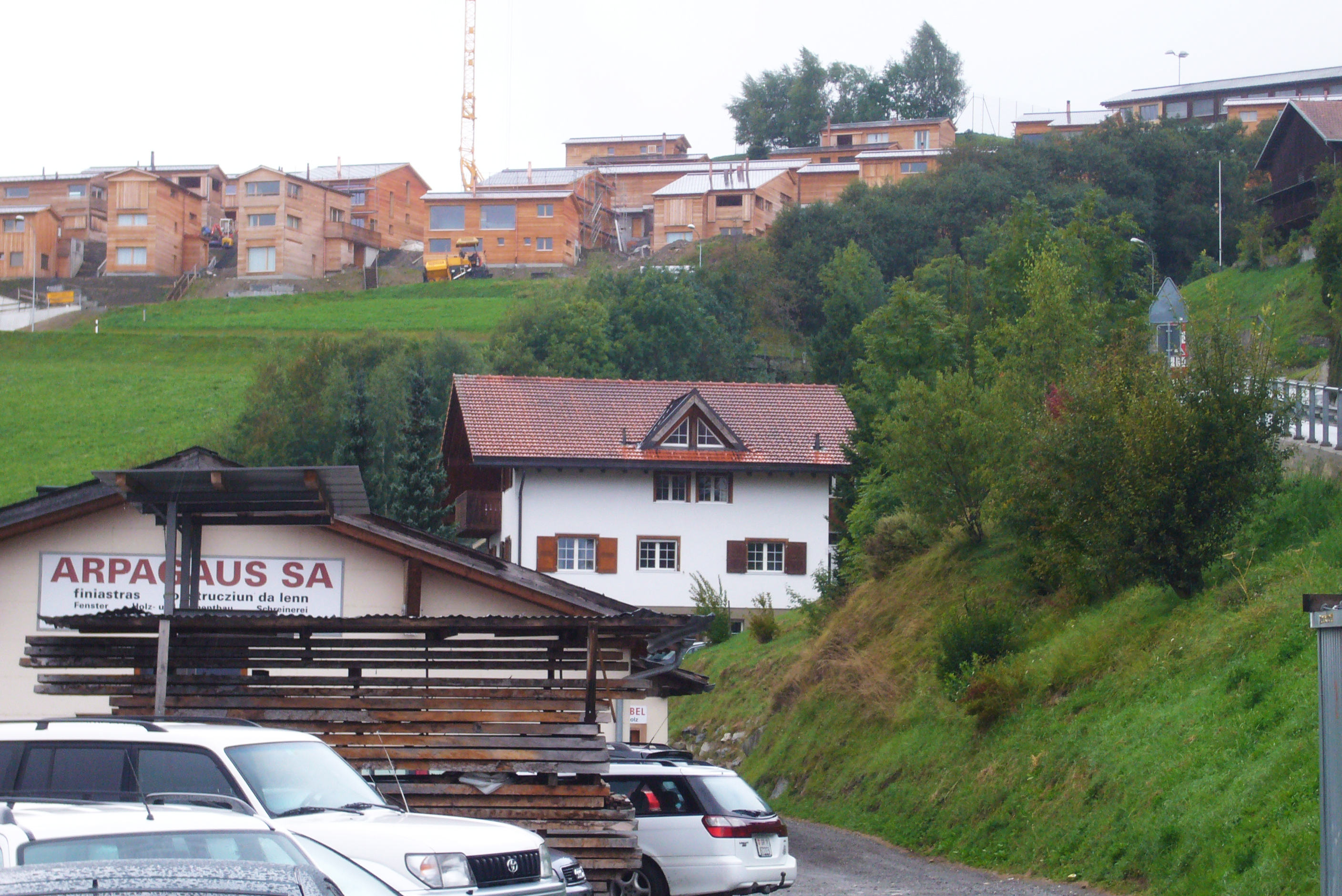
Jury out on whether Switzerland will hold another Expo

The Swiss national exhibition, Expo.02, has just closed and questions are being raised about whether such events should be staged in the future.
Traditionally, national exhibitions have showcased the best of a country – from agriculture to architecture and trade to technology.
Times have changed, however, and many cultural observers believe these “old fashioned” events no longer serve a purpose in today’s high-tech, information society.
Outdated
Correspondent Christoph Büchi, of the German-language Neue Zürcher Zeitung newspaper, believes national exhibitions are well past their prime.
“Since the end of the 19th century, these fairs were organised to show off the economic and industrial prowess of countries, in the context of national pride.”
According to Büchi, it was a concept that worked for decades up until 1964, when the last national exhibition was staged in Switzerland.
“Nowadays, people have other ways of getting information and discovering their country,” Büchi told swissinfo. “I don’t think we’ll see another Expo in 25 years time because as a forum for information, national exhibitions have seen their day.”
Self reflection
Jean-Jacques Demartines, who helped organise both the 1964 and 2002 Expos in Switzerland, couldn’t disagree more.
He firmly believes there will always be a need to “bring people together in one place, where they can reflect upon their past and their future”.
According to Demartines, Expo.02 played an important, therapeutic role in offering the Swiss a chance to confront and analyse their country’s problems.
“The Swiss are so complex and so self-critical that it’s important for them to be able to take a close look at themselves and at what the future can and will bring.”
Swiss parliamentarian Lucrezia Meier-Schatz is not sure whether there will be another Expo in the future. “I don’t know whether we will stage another Expo but I am sure we will have another national exhibition,” she told swissinfo.
“A national exhibition is essential for a country that has so many different faces like Switzerland. It’s important for our identity,” she added.
However, Swiss author, Erich von Däniken, doubts whether there will still be the need for a national exhibition in Switzerland in 25 years’ time. “We have to ask ourselves whether Switzerland will still exist in its present form,” he told swissinfo.
He also believes that a future national exhibition should not be political at all. “I think political groups should stop trying to influence the people. A national exhibition should be about Switzerland, just like it used to be,” he said.
National identity
The organisers of Expo.02 went out of their way to create a modern exhibition and portray Switzerland as a forward-looking country by ridding Expo of clichés.
The event’s artistic director, Martin Heller, believes it succeeded in reflecting the changing character and nature of national exhibitions.
Heller said that while Expo.02 was designed as a showcase for Switzerland’s technological, industrial and economic know-how, it was also designed to show off the country’s “cultural competence”.
“We wanted to portray Switzerland in a very contemporary way and to demonstrate its role in a globalised world.”
While critical of Expo as a concept, Büchi agrees the organisers did succeed in lending a strong sense of national identity to the event by steering away from “Swissness”.
“Expo.02 was a national exhibition that wished to be neither an exhibition nor national,” he told swissinfo, “and if there’s one thing that sums up the Swiss today, it’s their desire not to be too Swiss.”
Financial burden
Like the 2000 World Fair in Hanover and Britain’s Millennium Dome, Switzerland’s national exhibition was plagued by financial problems from the start and also suffered from low visitor numbers and a lack of international interest.
Meanwhile, France’s recent cancellation of a planned World Fair in 2004 has fuelled speculation that such events are destined for failure.
Heller argues, however, that it is unfair to draw comparisons between these types of events.
“The Millennium Dome had a split reception among the public, as did Hanover, but in the end visitor numbers did rise and people accepted it.”
Demartines believes large-scale exhibitions will always be criticised but he maintains this shouldn’t stop them from taking place.
“Expo.02 has been criticised for costing too much, but we heard the same thing back in 1964,” Demartines said.
“In the end, every generation deserves the opportunity to look at itself and its problems and if a country can’t find the money or the motivation to organise an event like Expo, then this is very sad.”
swissinfo, Anna Nelson
Expo.02 was well received by the public, according to a survey released after it closed.
Of 664 people questioned, 71 per cent had only good things to say.
Only 23 per cent of respondents – aged between 15 and 74 – gave it the thumbs down.
As Expo.02 draws to a close, attention is turning to the future of national exhibitions.
Critics say such events are “old fashioned” and no longer serve a purpose in today’s high-tech, information society.
Supporters argue that they play an important role in helping shape national identity.

In compliance with the JTI standards
More: SWI swissinfo.ch certified by the Journalism Trust Initiative








































You can find an overview of ongoing debates with our journalists here . Please join us!
If you want to start a conversation about a topic raised in this article or want to report factual errors, email us at english@swissinfo.ch.